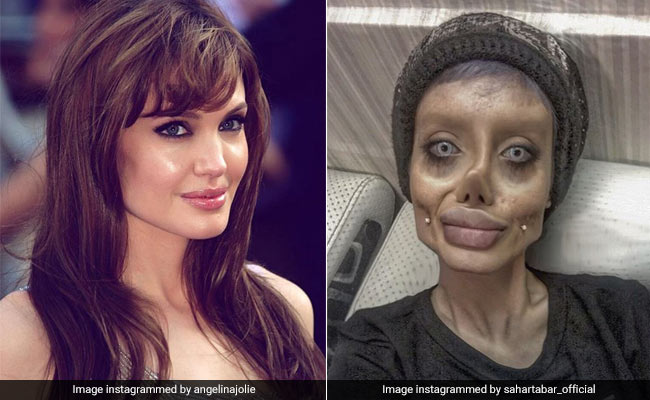Exploring the Emotional and Social Aspects That Drive Individuals to Think About Cosmetic Surgery as a Means of Enhancement
The choice to go after plastic surgery commonly extends beyond simple aesthetics, intertwining with social and mental dynamics that merit extensive evaluation. Factors such as self-esteem, prevalent societal beauty requirements, and the prevalent influence of social media assemble to shape specific motivations for surgical improvement. As these influences come to be progressively popular, recognizing the underlying psychological and cultural contexts is crucial. What continues to be to be explored is the extensive effect these factors have not just on individual identity yet likewise on more comprehensive societal standards and values surrounding appeal and acceptance.
The Duty of Self-Esteem
Self-confidence dramatically affects a person's choice to seek cosmetic surgery. Individuals with low self-esteem commonly regard themselves in an adverse light, leading to sensations of insufficiency concerning their physical appearance.

Inevitably, the role of self-esteem in the decision-making process regarding cosmetic surgery highlights the intricate interaction in between body image, personal fulfillment, and psychological wellness. Comprehending this connection is critical for health care experts to make certain that people are making informed decisions rooted in practical expectations and psychological wellness.
Social Charm Standards
Influenced by prevalent media portrayals and cultural stories, societal beauty criteria play an essential duty in forming individuals' assumptions of their very own bodies. These requirements are commonly characterized by an idealized type of charm that emphasizes qualities such as symmetry, slimness, and youthfulness. As these ideals are bolstered through numerous networks, including television, movie, and advertising, people regularly internalize these messages, resulting in frustration with their natural appearance.
The effects of these societal norms prolong past aesthetic preferences; they can influence self-esteem, psychological wellness, and interpersonal relationships. People that perceive themselves as disappointing these standards might experience sensations of inadequacy, prompting a desire for plastic surgery as a method of attaining societal approval. This pursuit is commonly sustained by the idea that complying with these suitables will certainly boost not just physical look however also social standing and personal gratification.

Influence of Social Network
The effect of social beauty standards is additional intensified by the rise of social networks systems, where curated photos and idyllic depictions of beauty are ubiquitous. Individuals are frequently exposed to filtered and edited pictures, which typically portray unattainable physical attributes. This exposure grows a culture of comparison, leading individuals to analyze their own appearance against these commonly unrealistic standards.
Social media influencers and celebrities frequently promote aesthetic treatments, stabilizing the notion that surgical enhancements are a viable ways for attaining societal ideals (plastic surgery rancho cucamonga). The exposure of these improvements can create a perception that going through cosmetic surgical treatment is a conventional method, therefore affecting individuals to consider similar treatments as a path to boosted self-esteem and social approval
Additionally, the interactive nature of social networks permits read the full info here immediate responses through sort and remarks, additionally strengthening the desire to adapt prominent beauty standards. Such communications can worsen sensations of inadequacy and drive individuals towards cosmetic surgery as a way of getting validation. Inevitably, social media sites plays an essential function in forming assumptions of charm, which considerably influences the decision-making procedures surrounding cosmetic surgical procedure.

Social Perspectives on Appearance
Throughout different cultures, assumptions of look are deeply rooted in historic, social, and economic contexts, shaping individuals' sights on elegance and charm. In lots of cultures, appearance acts as a substantial pen of identification, influencing social standing, expert opportunities, and individual relationships. For instance, in some cultures, light skin is frequently connected with wide range and benefit, while others may glorify darker skin tones as icons of stamina and authenticity.
Furthermore, conventional elegance standards are look at this web-site typically bolstered with cultural stories, media representations, and family members influences, leading to differing suitables throughout different regions (plastic surgery rancho cucamonga). In Western societies, the emphasis on youth and physical health and fitness commonly drives people towards aesthetic improvement, while in certain Eastern cultures, more subtle changes straightened with conventional appearances may be preferred
Globalization and the proliferation of electronic media have actually further complicated these characteristics, creating a hybridization of charm perfects that transcends geographical limits. As people increasingly navigate these social stories, the stress to satisfy certain look requirements can bring about the wish for plastic surgery, showing a complicated interaction of cultural values and personal goals. Understanding these cultural point of views is vital in dealing with the motivations behind plastic surgery considerations.
Mental Influences of Aesthetic Surgical Treatment
Many people looking for plastic surgery report experiencing extensive emotional impacts that can dramatically alter their self-perception and psychological wellness - plastic surgery rancho cucamonga. The desire for physical improvement usually stems from underlying concerns such as reduced sites self-worth, body dysmorphic disorder, or societal pressures pertaining to appeal criteria. For some, the instant post-operative phase can bring about a short-lived boost in confidence and satisfaction with their look, cultivating a feeling of empowerment
However, these favorable feelings may not be sustaining. Research study indicates that while some people experience boosted self-worth, others may encounter heightened anxiety or depression if their expectations are not fulfilled. This disparity can emerge from impractical ideals perpetuated by media depiction and social stories bordering appeal.
Additionally, the mental implications of cosmetic surgery expand past the person. Relationships with family members and close friends may be stressed as social dynamics change, bring about feelings of isolation or alienation. Ultimately, the psychological effects of plastic surgery are complex and diverse, calling for careful factor to consider by both prospective people and doctor to make certain enlightened decision-making and sensible expectations.
Conclusion
To conclude, the choice to seek plastic surgery is significantly affected by a combination of self-confidence issues, social appeal standards, and social point of views on appearance. The prevalent reach of social networks further aggravates these stress, advertising unrealistic suitables that people typically aim to attain. Recognizing these mental and social elements is necessary for attending to the motivations behind plastic surgery, highlighting the need for an extra nuanced conversation surrounding beauty and self-acceptance in contemporary society.
The decision to pursue cosmetic surgical treatment commonly prolongs beyond simple looks, intertwining with social and mental characteristics that merit thorough examination. Eventually, social media plays an essential function in forming assumptions of charm, which significantly influences the decision-making procedures surrounding cosmetic surgical procedure.
As individuals progressively browse these social stories, the pressure to adapt to particular appearance requirements can lead to the desire for cosmetic surgical treatment, showing a complicated interaction of social worths and personal goals.In final thought, the choice to seek cosmetic surgical treatment is considerably influenced by a mix of self-confidence problems, social appeal standards, and social point of views on appearance. Understanding these social and mental variables is vital for dealing with the inspirations behind cosmetic surgical procedure, highlighting the requirement for a more nuanced conversation bordering charm and self-acceptance in modern culture.